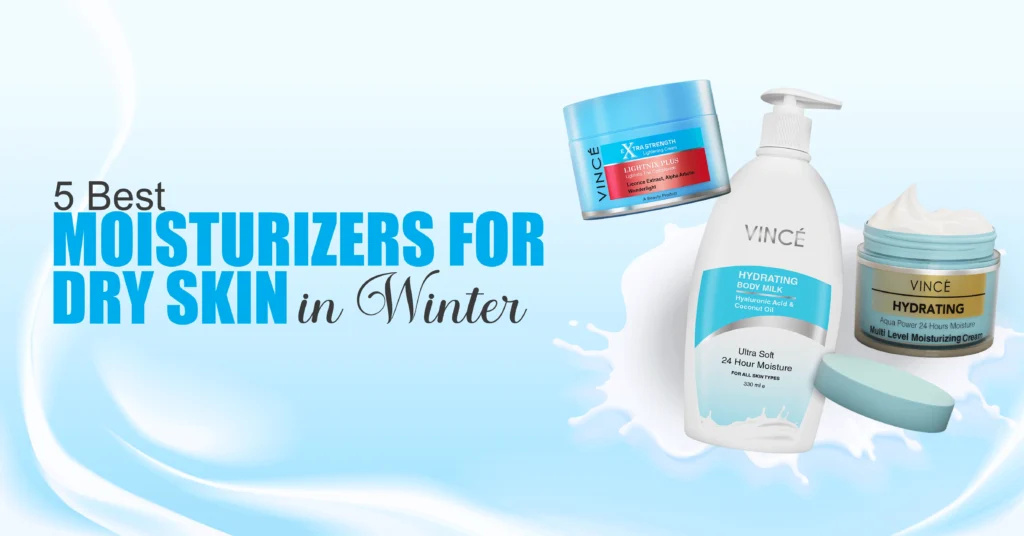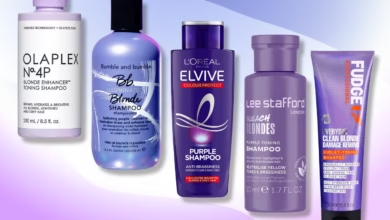Best winter moisturiser: Top Picks for Dry and Sensitive Skin

Winter may bring cozy evenings, festive holidays, and the charm of snow, but for your skin, it’s often the harshest season of the year. Cold air, low humidity, and indoor heating strip your skin of its natural moisture, leaving it dry, tight, and prone to irritation. Many people notice their skin feeling flaky or itchy during the colder months, and without proper care, these issues can escalate into more stubborn concerns like eczema flare-ups or cracked skin. This is where the right Best winter moisturiser comes in.
A good moisturiser acts as a protective shield, locking in hydration while restoring the skin barrier. Unlike lightweight summer creams, winter moisturisers are typically richer, with ingredients that target deep nourishment and long-lasting hydration. Choosing the best winter moisturiser depends not only on the climate you live in but also on your unique skin type and needs.
In this article, we’ll dive into why your skin requires extra attention in winter, the key ingredients you should look for, and the best options across skin types and budgets. We’ll also explore application tips to maximize the benefits of your skincare routine. Whether you have dry, oily, sensitive, or combination skin, this guide will help you find your perfect winter moisturiser.
Why Your Skin Needs Extra Care in Winter
Winter weather is particularly unforgiving because it reduces the skin’s natural ability to retain moisture. The cold air outside contains less humidity, which draws water out of the skin. Once indoors, central heating systems continue the cycle by further drying the environment, creating a double impact. As a result, the skin barrier—responsible for keeping hydration in and irritants out—becomes weakened, leading to dryness, redness, and sensitivity.
Many people also find that winter aggravates existing skin conditions. For those with eczema, psoriasis, or rosacea, flare-ups are more common during cold months. Even individuals who usually have normal skin can experience rough patches, cracked hands, or chapped lips. This is why simply relying on your usual moisturiser may not be enough; a stronger, winter-appropriate formula is often required.
Unlike summer skincare routines, winter care must be more intensive. In summer, lightweight gel-based moisturisers may suffice because of higher humidity. But in winter, the skin benefits more from heavier creams or balms that provide an occlusive layer, preventing water loss. The goal is to adapt to the season by reinforcing hydration and protection, not just treating dryness after it appears.
The best winter moisturisers don’t just hydrate—they nourish, repair, and strengthen the skin. By using the right product consistently, you can enjoy smooth, radiant skin despite the harshest of climates.
Key Ingredients to Look for in the Best Winter Moisturiser
When searching for the best winter moisturiser, the ingredient list is just as important as the brand name. Certain key ingredients are particularly effective in addressing winter dryness. Hyaluronic acid, for instance, is a powerful humectant that attracts and retains water in the skin, keeping it plump and hydrated. It’s suitable for almost all skin types, including oily and sensitive skin.
Ceramides are another must-have. These naturally occurring lipids make up a large part of the skin’s barrier. When levels drop due to cold weather, replenishing ceramides through moisturisers helps repair and strengthen the skin, reducing sensitivity and water loss. Similarly, glycerin is a tried-and-tested humectant that works alongside hyaluronic acid to lock in hydration.
For deeper nourishment, shea butter and cocoa butter are excellent choices. These emollients provide a rich texture that soothes dry patches and forms a protective shield against environmental aggressors. Natural oils like jojoba, almond, and argan oil also play a role in softening skin while delivering vitamins and fatty acids.
It’s equally important to avoid harsh ingredients. Moisturisers that contain high levels of alcohol, synthetic fragrance, or parabens can further irritate already vulnerable skin. In winter, gentle, fragrance-free formulas often work best, especially for sensitive skin.
By focusing on moisturisers rich in these hydrating and repairing ingredients, you’ll ensure that your skincare routine is not only protective but also restorative during the colder months.
Best Winter Moisturisers by Skin Type
Choosing the best winter moisturiser also depends on your skin type. For dry skin, rich creams and balms are ideal. Products with shea butter, ceramides, and oils help replenish lost moisture and prevent flakiness. Overnight masks can also deliver intensive hydration while you sleep.
If you have oily skin, winter can still bring dryness, especially in areas like the cheeks, while the T-zone remains greasy. In this case, gel-based or lightweight moisturisers with hyaluronic acid are perfect. They hydrate without clogging pores or making skin feel greasy. Non-comedogenic formulas are essential here.
Sensitive skin needs extra care in winter because cold air often increases redness and irritation. Fragrance-free, hypoallergenic moisturisers with calming ingredients like aloe vera, oatmeal, or ceramides can help. Avoiding essential oils and harsh preservatives is crucial to prevent flare-ups.
For combination skin, a balancing moisturiser is best. Look for formulas that hydrate dry areas without overwhelming oily zones. Using different moisturisers for different parts of the face is also an option.
Lastly, mature skin requires anti-ageing support in addition to hydration. Moisturisers enriched with peptides, antioxidants like vitamin E, and retinol alternatives can help maintain firmness while combating dryness. By choosing products that cater to your skin type, you’ll maximize the effectiveness of your winter skincare routine.
Affordable vs. Luxury Winter Moisturisers

When it comes to winter skincare, the price tag doesn’t always dictate effectiveness. Many affordable drugstore moisturisers provide excellent hydration, thanks to science-backed formulations. Brands like CeraVe, Eucerin, and Nivea offer creams with ceramides, glycerin, and shea butter at accessible prices. These products are often dermatologist-recommended and perform just as well as their luxury counterparts.
On the other end of the spectrum, luxury moisturisers often boast advanced formulations, elegant textures, and added ingredients like rare oils or cutting-edge peptides. Brands such as La Mer, Clinique, and Estée Lauder create indulgent creams that not only hydrate but also address anti-ageing, skin tone, and elasticity. For many, the sensory experience and packaging also add to the appeal of high-end skincare.
The real question is: do luxury creams work better? In some cases, yes—they may provide longer-lasting hydration or additional skin benefits. However, for basic winter hydration, affordable options can be equally effective. The choice depends on individual preferences, budget, and specific skin needs.
Whether you choose a budget-friendly or luxury option, the key is to ensure that the product contains proven hydrating and barrier-repairing ingredients. Consistency in application is more important than the price tag when it comes to maintaining healthy winter skin.
Application Tips for Maximum Hydration
Even the best winter moisturiser won’t deliver results unless applied correctly. Timing is crucial: apply moisturiser immediately after cleansing or showering while your skin is still slightly damp. This helps lock in water and enhances absorption. Using lukewarm water instead of hot when washing your face or body also prevents additional dryness.
Layering is another effective strategy. Start with hydrating serums containing hyaluronic acid, then seal them with a moisturiser. For very dry skin, finishing with a few drops of facial oil can further boost hydration. At night, consider using thicker creams or overnight masks that work while you sleep, allowing your skin to repair and replenish.
Morning routines should include moisturiser followed by sunscreen, even in winter. Many people underestimate the power of UV rays during colder months, but they can still cause skin damage. Opt for a broad-spectrum SPF combined with your moisturiser for all-day protection.
Other lifestyle adjustments also support skin hydration. Using a humidifier indoors helps restore moisture in heated rooms, while staying hydrated by drinking water ensures your skin remains nourished from within. Together, these practices ensure your moisturiser works to its full potential.
Conclusion
Finding the best winter moisturiser is about more than just tackling dryness—it’s about protecting your skin barrier, preventing irritation, and ensuring year-round radiance. Cold weather can be harsh, but with the right ingredients and tailored choices for your skin type, you can keep your complexion smooth, healthy, and glowing. Whether you prefer affordable drugstore options or luxury creams, consistency and proper application are the real game changers.
Winter skincare doesn’t have to be complicated. By investing in the right moisturiser and making small routine adjustments, you can embrace the season without worrying about dry or flaky skin. Healthy, hydrated skin is always in style, no matter how cold it gets outside.
FAQs About Best Winter Moisturiser
What is the best winter moisturiser for very dry skin?
Rich creams with ceramides, shea butter, and oils are best for very dry skin.
Can oily skin types skip moisturiser in winter?
No. Even oily skin needs hydration; choose lightweight, non-comedogenic formulas.
Are natural oils enough to replace moisturiser in cold weather?
Not always. Oils can complement moisturisers but don’t always provide the same barrier support.
Should I use the same moisturiser for face and body in winter?
It’s better to use separate formulas, as face creams are designed for delicate skin while body creams are richer.
How often should I apply moisturiser during winter?
At least twice daily—morning and night—for optimal hydration.
Do men and women need different winter moisturisers?
Not necessarily. Skin type and needs matter more than gender when choosing a product.
Can winter moisturisers help with eczema or psoriasis?
Yes, but it’s best to choose dermatologist-recommended creams designed for sensitive or compromised skin.
You May Also Read: Karvol capsules banned




